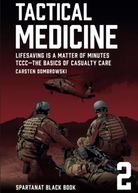Get the weekly SPARTANAT newsletter.
Your bonus: the free E-Book from SPARTANAT.
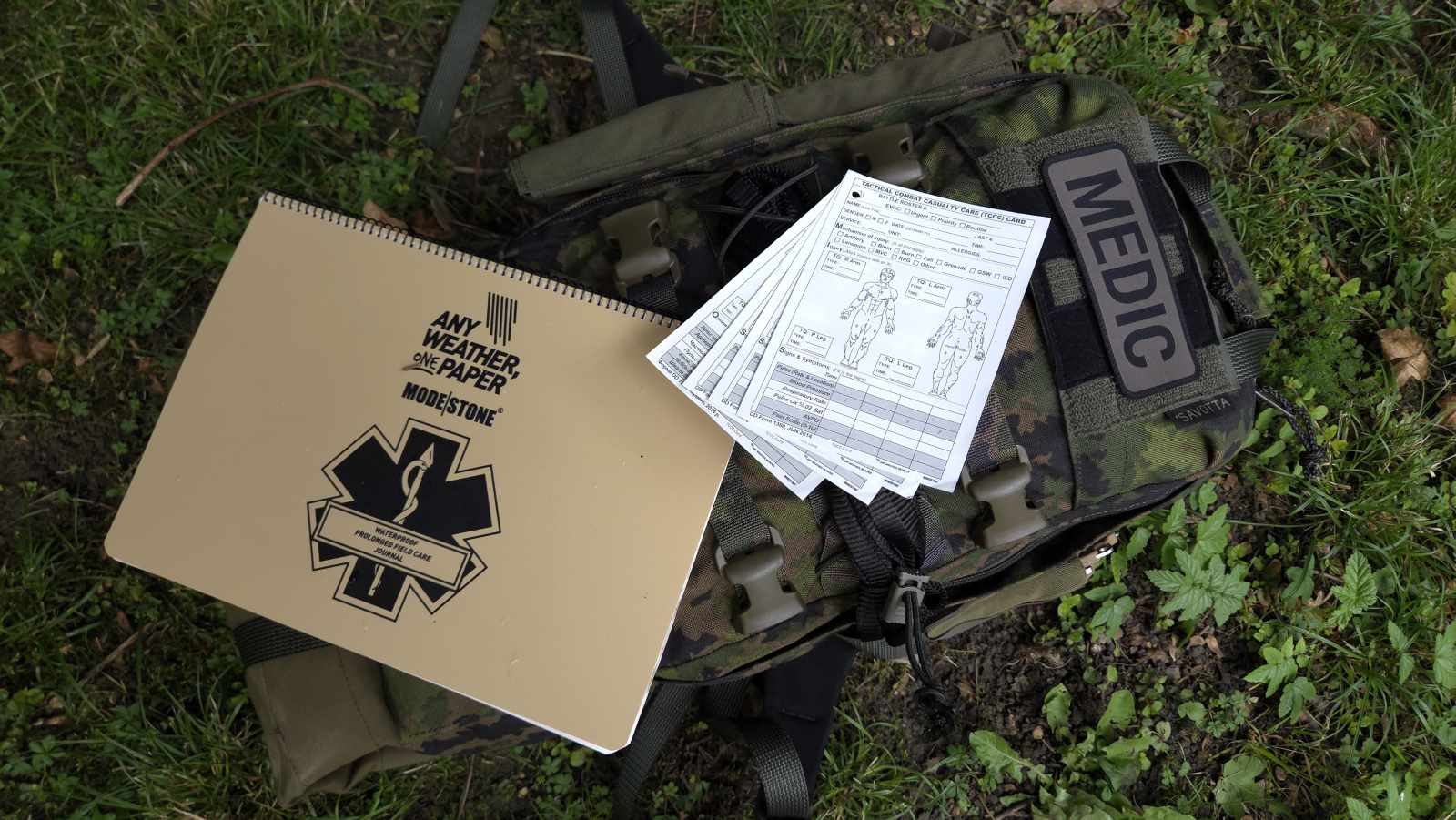
In complex medical situations where every minute counts, thoughtful organization and preparation are of utmost importance. The Prolonged Field Care Journal (PFCJ) in A4 format and the small TCCC Casualty Card in A6 format from the Finnish company MODESTONE provide valuable support for medical professionals, military personnel, and adventurers alike. Designed with the challenges of difficult conditions in mind, this product equips you with the necessary tools to manage the complexity of prolonged field care. We received a copy from ATG Kriminaltechnik and will introduce it in detail below.
What Makes MODESTONE Different?
MODESTONE is committed to the principle of sustainability, and therefore manufactures this card without the use of plastic or wood-based materials. The substance used is stone paper, which is categorized as environmentally friendly and effective. It is primarily composed of the mineral calcium carbonate (CaCO3) and contains a small amount of non-toxic HDPE. MODESTONE produces all its products in Finland.
HDPE is characterized by its waterproof and water-repellent properties. It has high impact resistance and good UV stability. Additionally, it is odorless and non-toxic. Calcium carbonate (CaCO3) is used in paper manufacturing as a filler and coating pigment, optimizing the quality, smoothness, opacity, and brightness of the paper.
The Prolonged Field Care Journal (PFCJ)
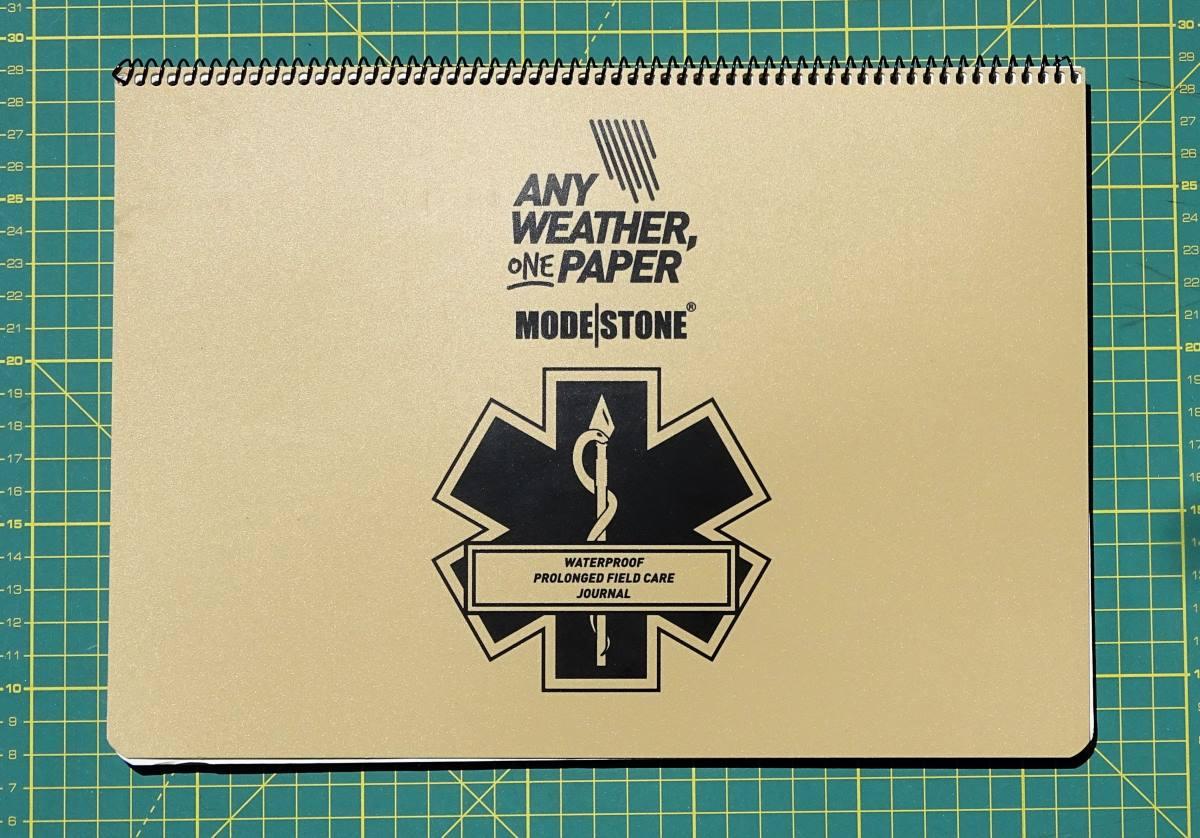
The development of this journal was specifically tailored for medical use in the field, with support from medical professionals. The design is adapted for quick and effective documentation of patient care, simplifying the tracking of treatment, pharmaceuticals, and patient reactions over time.
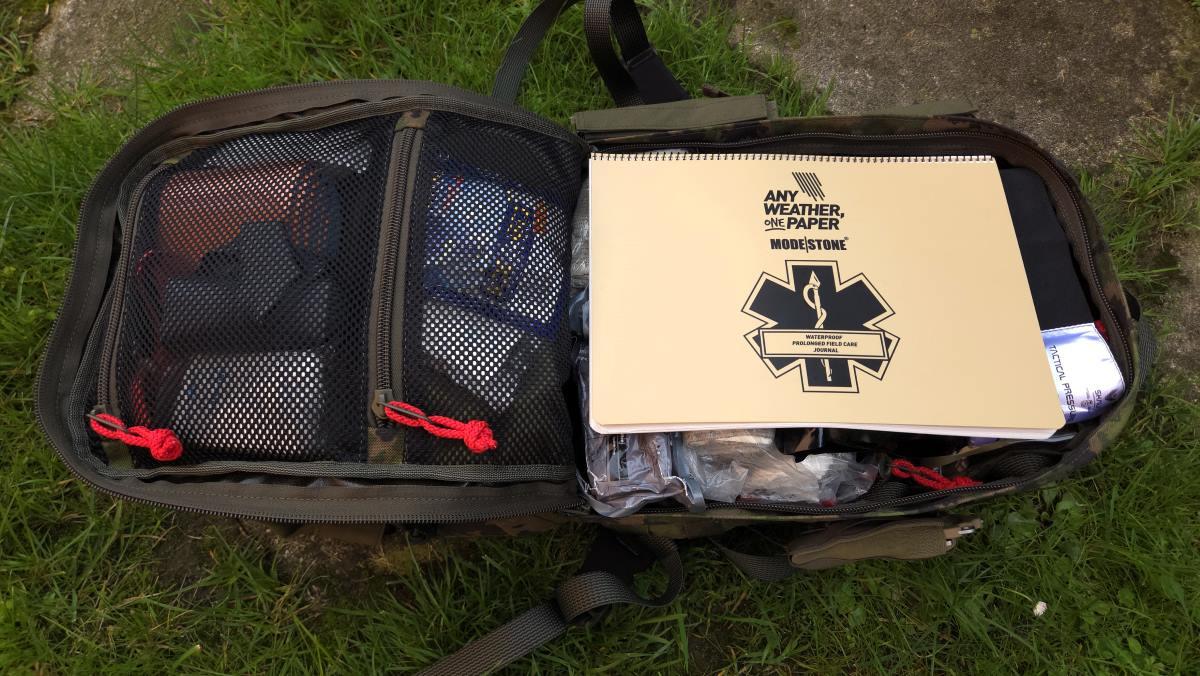
The 295 x 210 mm journal (40 sheets, 80 pages) is thoughtfully designed and organizes everything optimally. Its user-friendly design is convincing. It fits in medical bags or backpacks, making it always within reach.
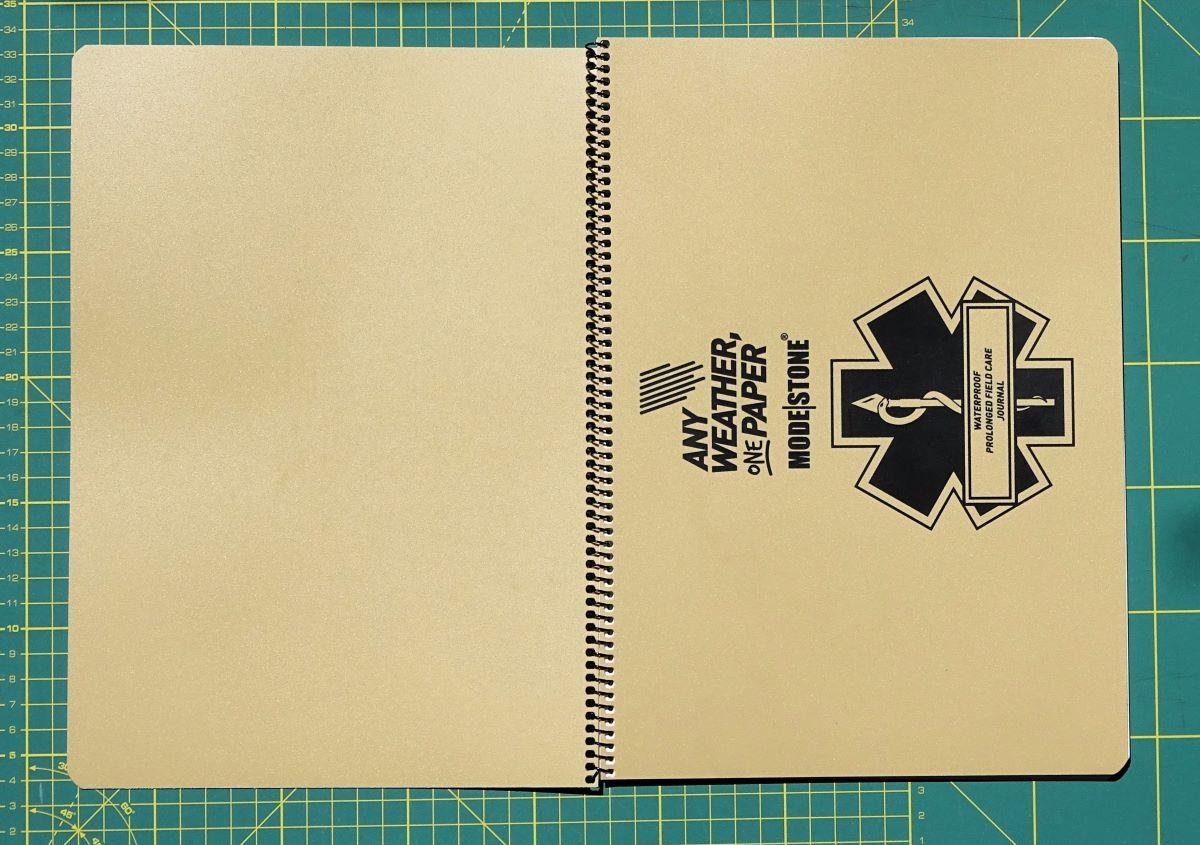
The PFCJ features a side spiral binding. The covers are made of sturdy plastic in sand color.
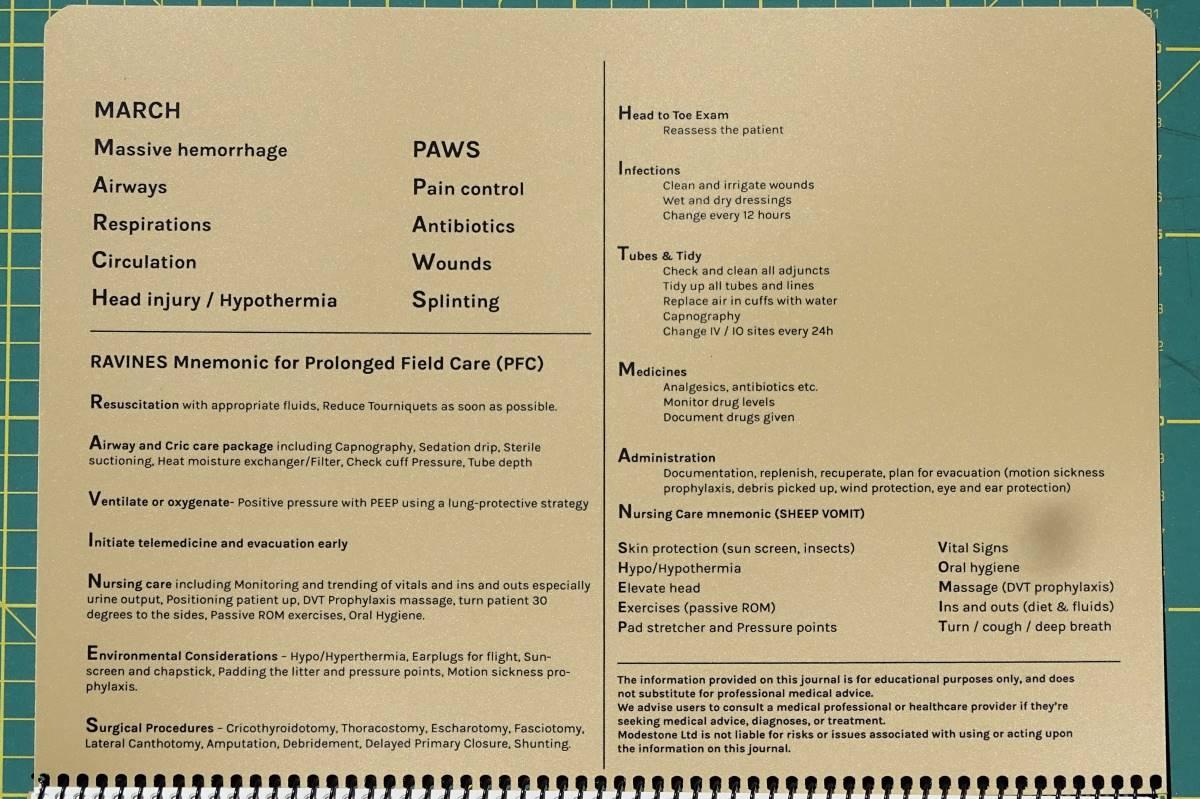
“Every second counts!” The abbreviations MARCH, PAWS, RAVINES, HITMAN, and SHEP/VOMIT can be found on the inside cover of the PFCJ. They serve as memory aids in stressful situations and for quickly recalling important protocols and procedures in the area of TCCC/TECC.
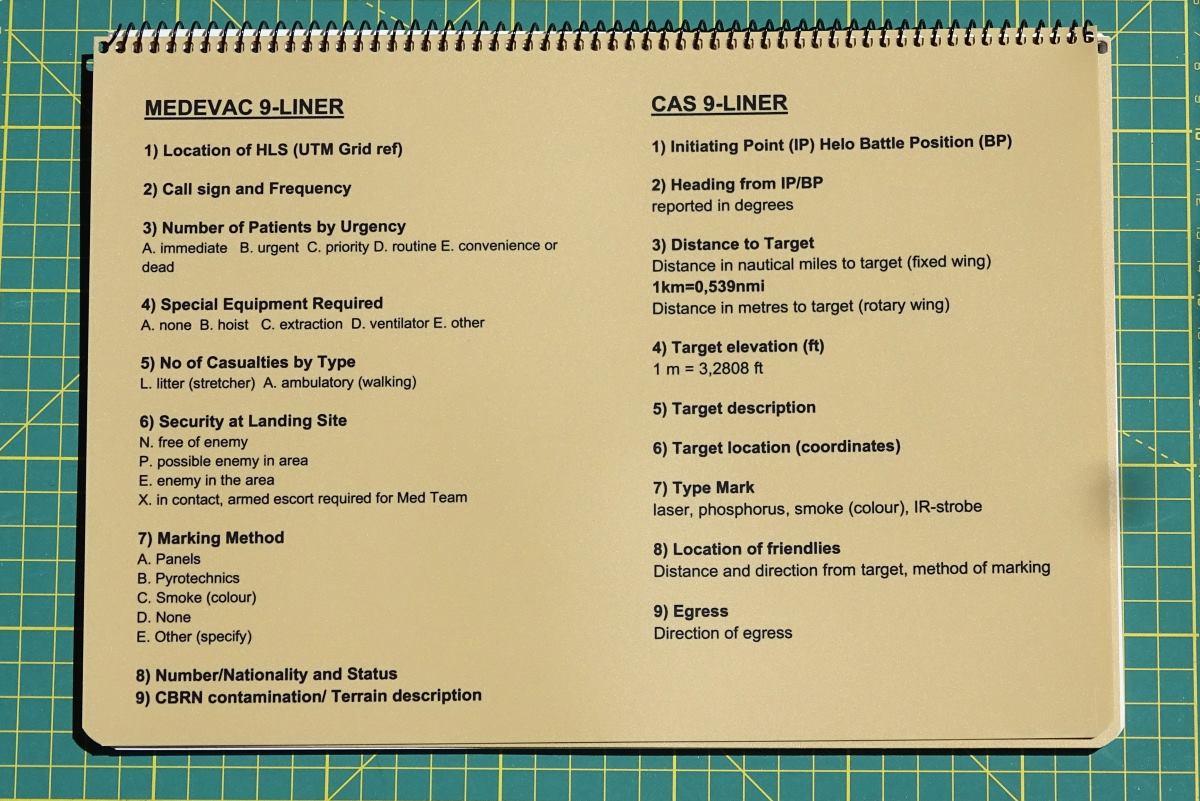
On the inside of the back cover, you will find the MEDEVAC-9-Liner and the CAS-9-Liner. This way, all critical information is readily available when transmitting evacuation and casualty information.
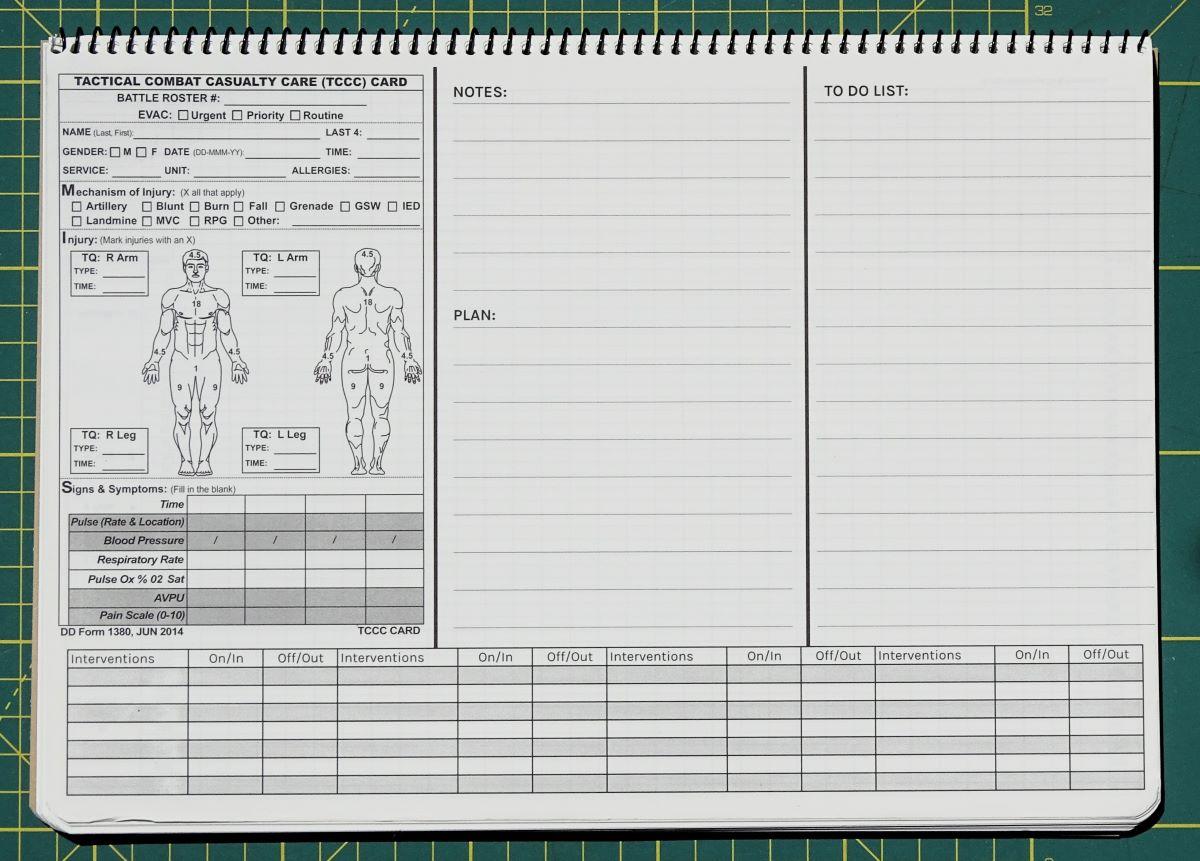
It is recommended to have basic medical knowledge readily available. To this end, a TCCC card, an interventions area, and a special chart for recording vital signs can be used.
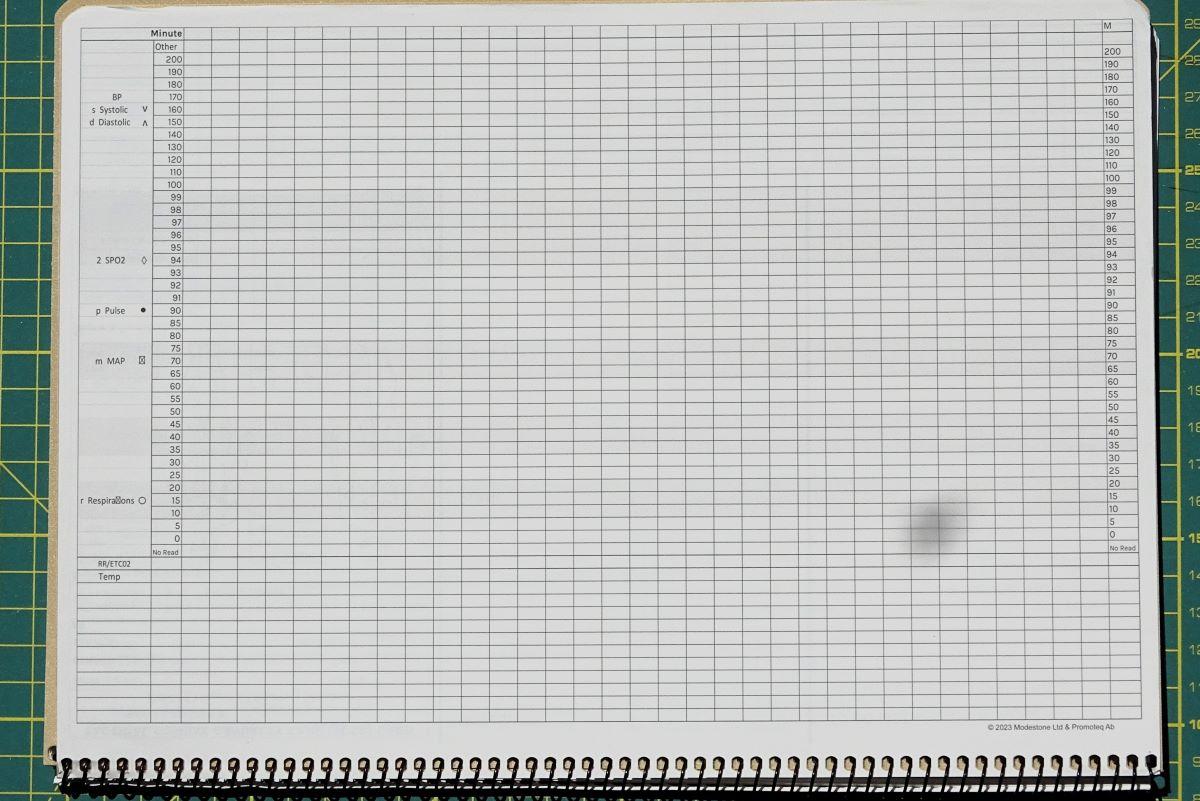
This chart on the back allows for the recording of blood pressure, oxygen saturation, pulse, MAP, respiration, as well as RR/ETCO2 and temperature, among others. The chart allows for systematic tracking of patient progress.
The TACTICAL COMBAT CASUALTY CARE (TCCC) Card
The dimensions of the waterproof, double-sided TCCC Casualty Card are approximately 148 x 105 mm. It is used for the tactical care of casualties (TCCC/TC3). The simple handling of the form allows for quick care and triage of casualties on site.
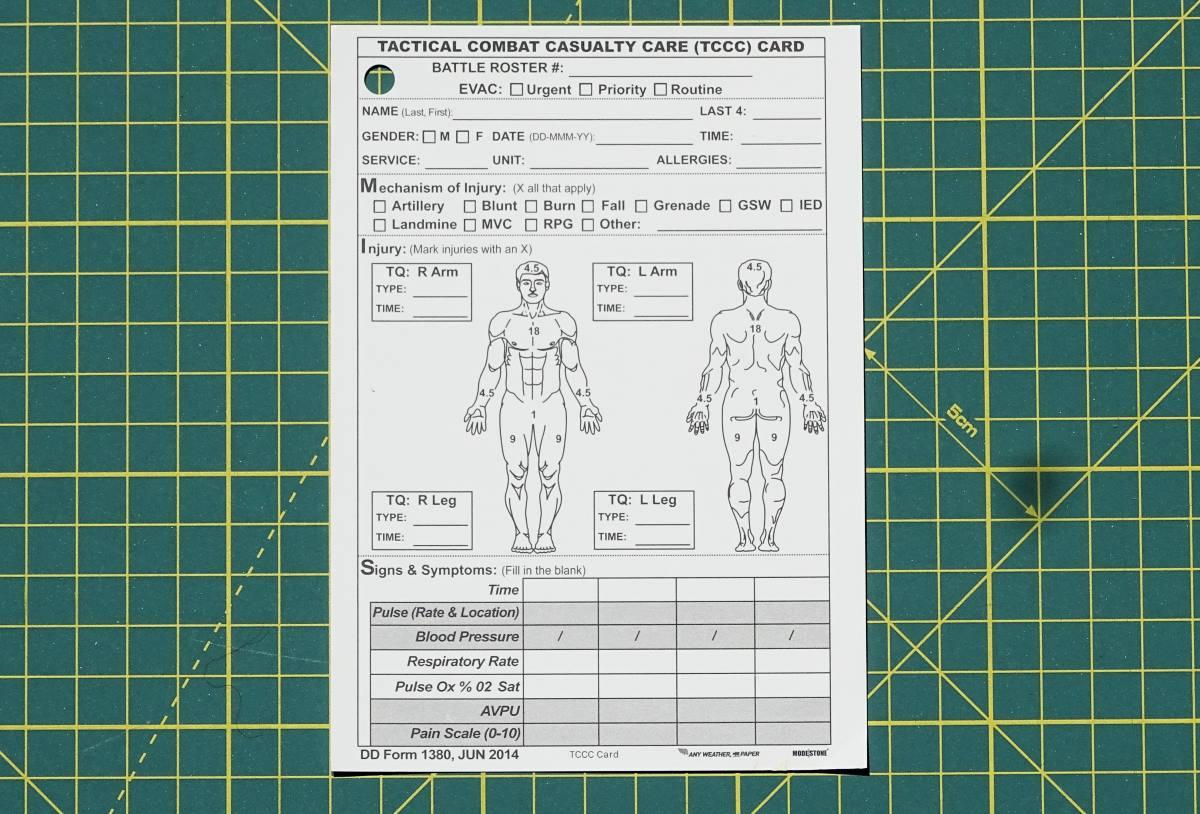
The present diagram is straightforward and designed for documenting injuries. It includes various categories, such as the mechanism of injury, pulse rate, blood pressure, and treatments performed.
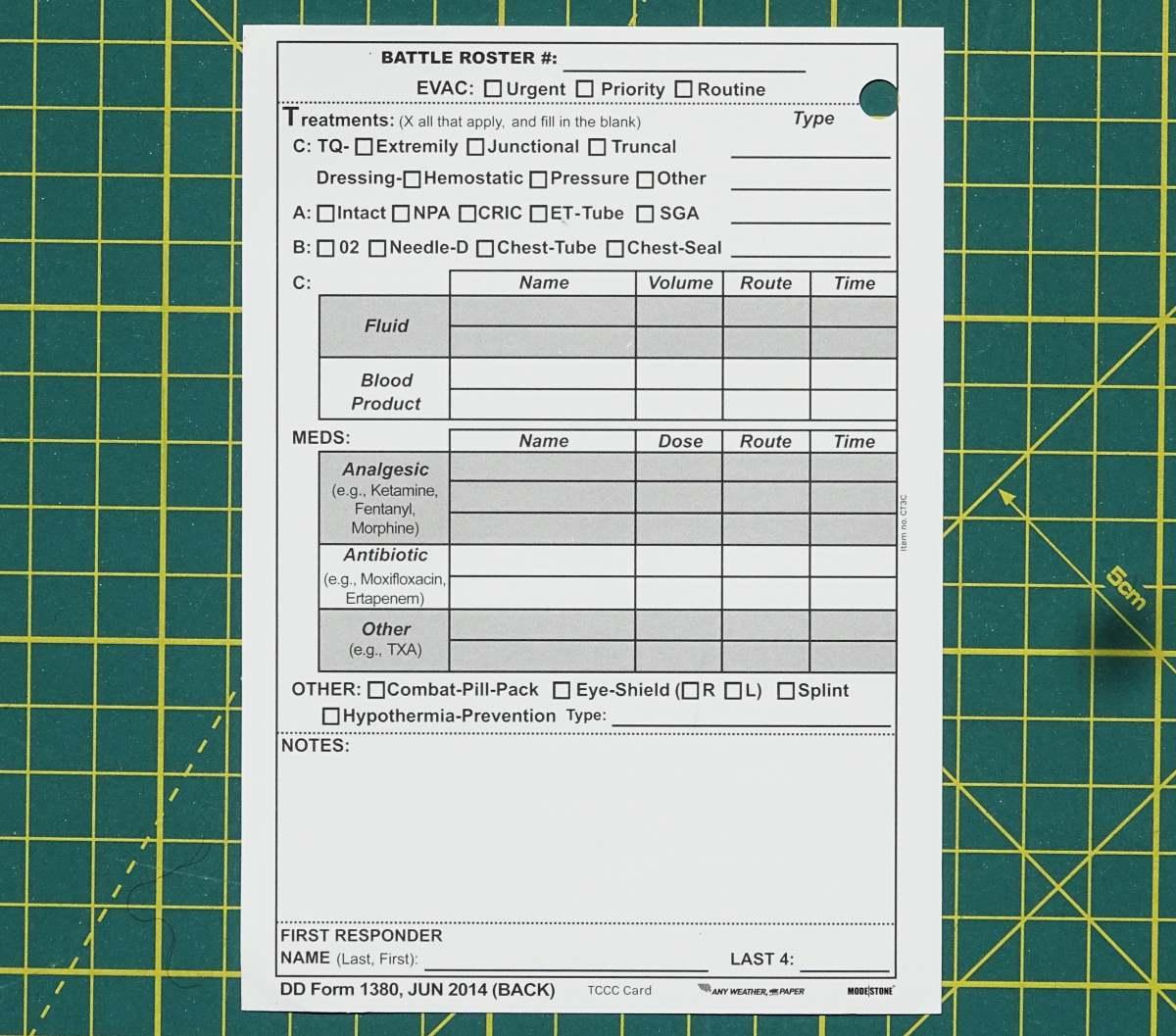
The back of the casualty card is based on the CABC concept and contains additional important information regarding the treatments performed on the patient.
In Practice
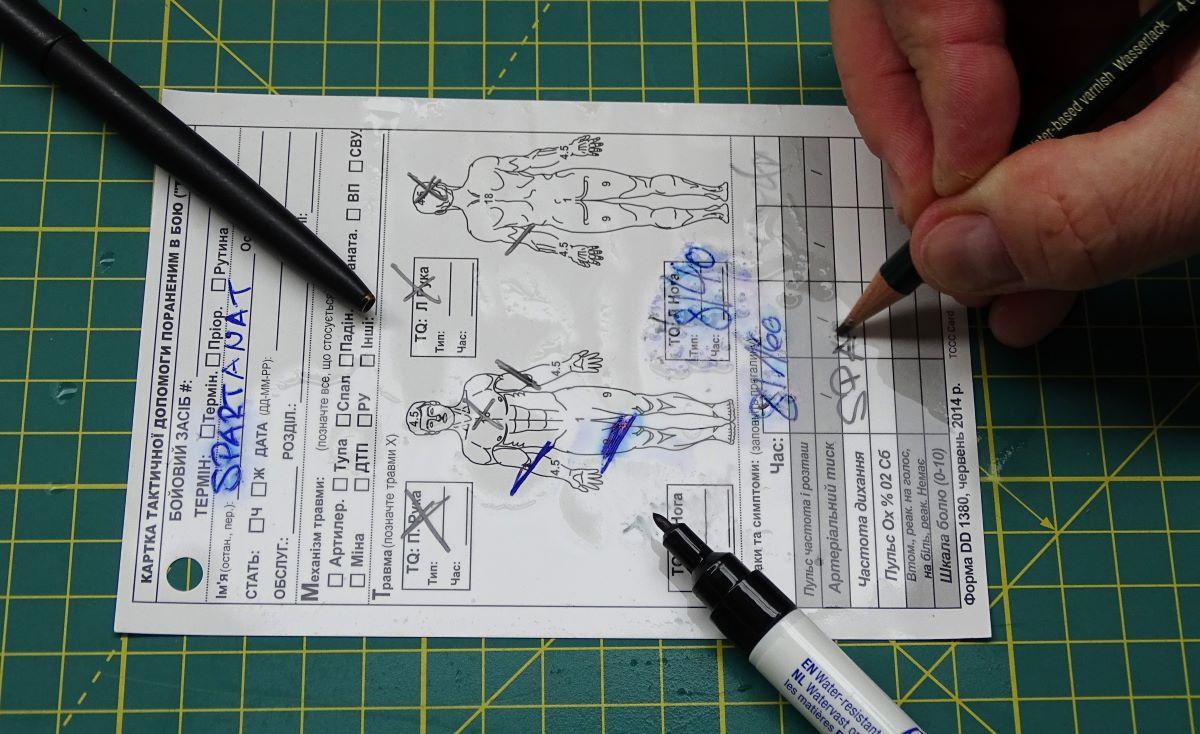
The Prolonged Field Care Journal (PFCJ) and the TCCC Casualty Card were submerged in water for several days and hung on a clothesline in the rainy month of July. The paper was not damaged and did not dissolve. Subsequently, it was written on with various writing instruments. Both regular ballpoint pens and special pens from Rite-in-the-Rain and Fisher Space Pen worked on wet paper. Surprisingly, a pencil for stenography was also successful.
On dry paper, Edding and Sharpie work well, and the ink does not smudge. However, these pens do not work on wet paper.
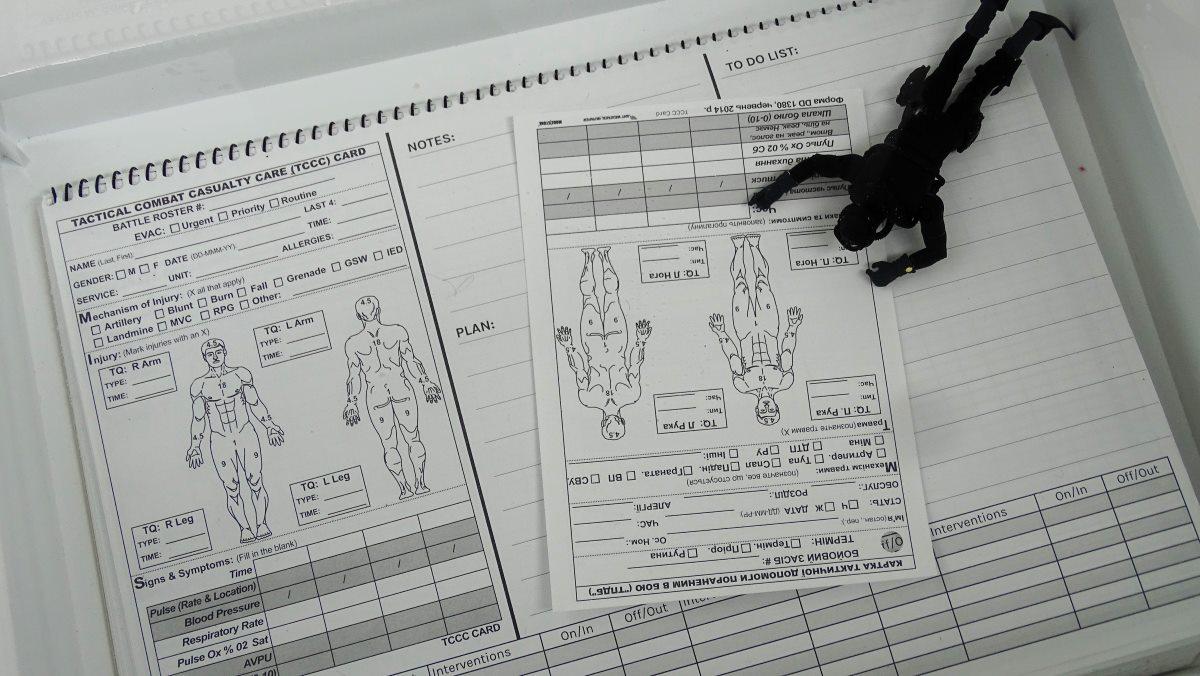
The Prolonged Field Care Journal is designed for outdoor use and has a high water resistance (100%) as well as resistance to oil and fat. It is thus protected against rain, snow, or accidental contact with liquids. Although the PFCJ was submerged in water for several days, there is no evidence of damage or moisture marks. It also survived the rainy month of July outdoors. The paper dries quickly. Additionally, it is worth mentioning that the wet pages do not stick together, and the journal does not warp.
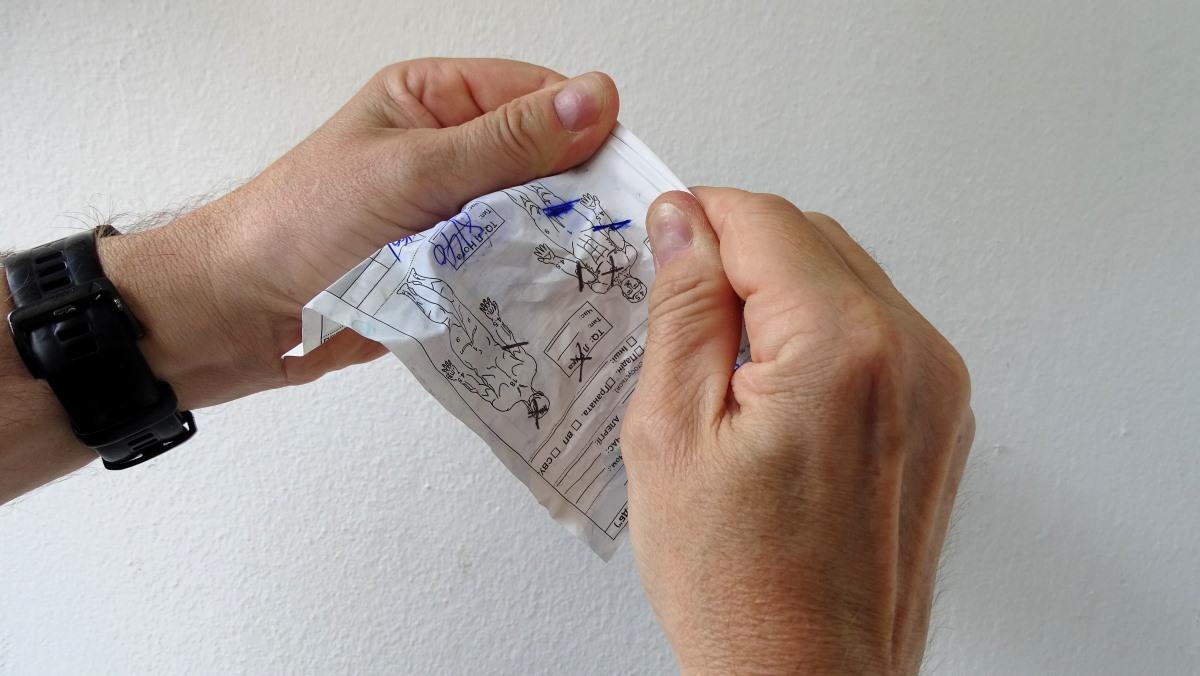
According to the manufacturer, the paper from MODESTONE is tear-resistant and fireproof. Since it has no paper cuts, it can be handled safely. It requires a certain amount of effort to tear it.
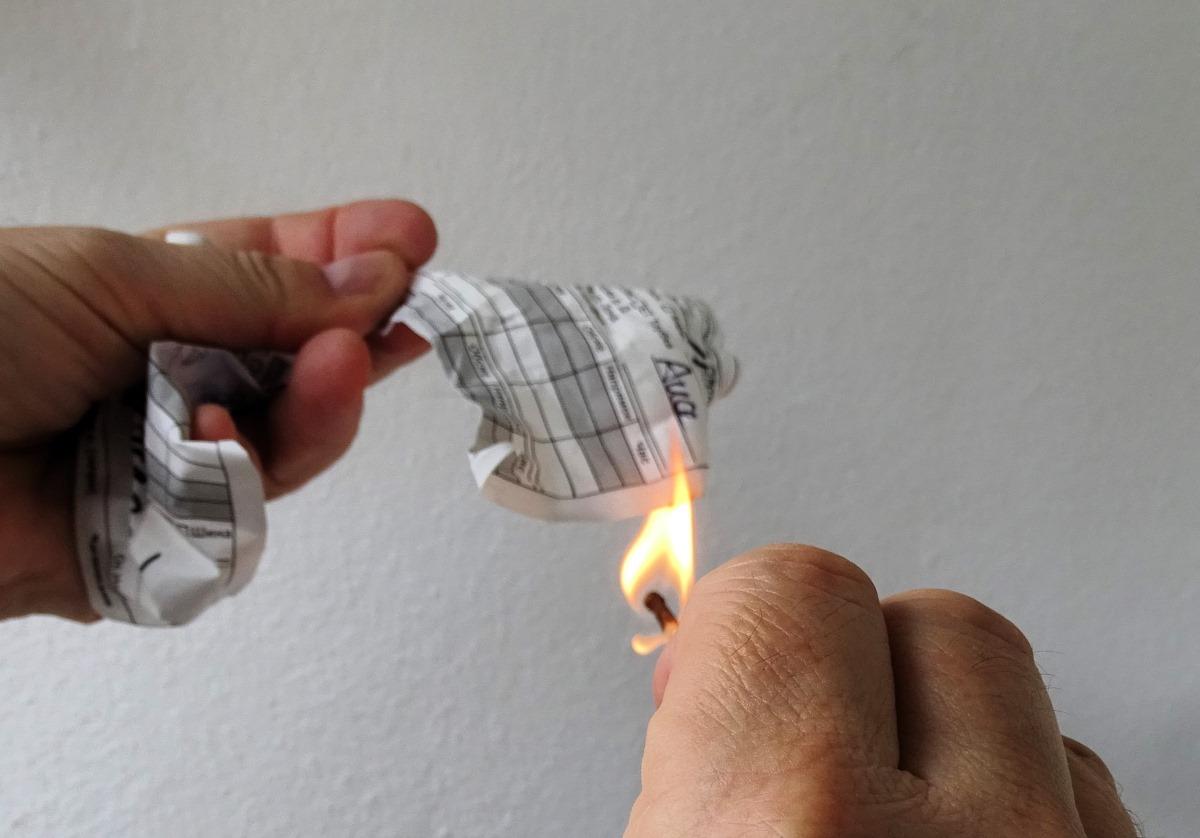
We are passionate about our work, which we pursue with devotion and dedication. The paper was difficult to ignite, making the task a real challenge.
CONCLUSION
The Prolonged Field Care Journal (PFCJ) and the TCCC Casualty Card from MODESTONE are a valuable resource for responders operating in remote expeditions, disaster areas, or challenging military operations. It enhances the expertise of users and supports them in tackling these demanding tasks. Thanks to its thoughtful design, important data is always quickly accessible, allowing for informed decisions to be made rapidly.
One suggestion from our side: The color orange on the last page would be practical to use it as a signaling panel. The Prolonged Field Care Journal can be used as a marker in medical evacuations.
The Prolonged Field Care Journal (PFCJ) and the TCCC Casualty Card from MODESTONE are available at ATG Forensic Technology.
The PFCJ with its 40 sheets/80 pages is available in English and costs 49 EUR.
The TCCC Casualty Card is available in a packaging unit with fifty sheets and a ring binder. It is currently available in English and Ukrainian and costs 62 EUR.
MODESTONE online
MODESTONE on Instagram
ATG Forensic Technology online
SPARTANAT is the online magazine for Military News, Tactical Life, Gear & Reviews.
Send us your news: [email protected]
Ad
similar
Get the weekly SPARTANAT newsletter.
Your bonus: the free E-Book from SPARTANAT.


